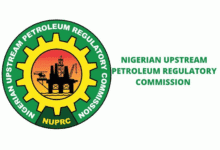30 Regulations Required For Effective PIA Implementation -NUPRC

…Consults Stakeholders To Issue Three More Regulations
The Nigerian Upstream Petroleum Regulatory Commission (NUPRC) has hinted that about 26 to 30 key regulations would be required for the effective implementation of the Petroleum Industry Act (2021).
Engr. Gbenga Komolafe, the Commission Chief Executive, gave the hint at the Phase 4 Stakeholders Consultation Forum on Draft Regulations Pursuant to the PIA in Abuja on Wednesday.
Represented by the Head, Compliance and Enforcement, NUPRC, Mr. Kingston Chikwendu, the CCE said, apart from the the 14 regulations so far issued, the commission has on development another 10 regulations.
He said, “today’s session is part of the continuation of the series. So far, we have held four sessions of consultations, and this is the fourth one, and this is the last segment of the fourth one.
“These consultations started in August last year when we held the first consultations with the industry, and following that consultations, we held two others, and the outcome of it is that within this period, the commission has issued 14 regulations that become part of the law of the land and part of the instruments the NUPRC will use to regulate the industry.
“What we are considering now is three out of the seven that are made up of the ones we are doing for this particular segment. Hopefully, by the time this is concluded, we will then be able to hold further consultations because we have on development another 10 regulations because the commission has identified about 26 to 30 regulations that we consider as key regulations that need to be in place immediately for us to have effective implementation of the PIA, and then to achieve the objectives of the PIA”, he said.
The NUPRC boss said, the stakeholders’ engagement organised was the practicalisation of the provision of the act which mandates the regulator, in this case, the NUPRC to consult with the members of the public and stakeholders in the industry before making any regulations.
He noted that the commission has made significant progress from the consultations with the stakeholders and players in the industry.
‘We have made significant progress. We consider this engagement very important and serious. So far, the results we have seen are that we have the regulations that have the buy-in of the industry and members of the public, so as you can see it will now make the job that the commission is doing a lot more easier. Typically, will be aligned on the key provisions that are contained in these regulations”, he said.
Highlighting the three regulations, he said, “between today and Friday we are going to consider three regulations. These regulations are the draft upstream petroleum code of Conduct and Compliance 2023, draft Upstream Petroleum Harmonisation Regulation 2023, and the draft amendment Regulations/ Host Community Regulation 2023”.
He noted that of the three regulations, the very first two were new in the industry and quite novel.
According to him, “the first one, code of conduct and compliance regulation, as you can deduce from the title of the regulation seeks to prescribe acceptable conduct. Our industry is a heavily regulated one where very strict rules are followed because of the type of risk that is involved, generally in the business of petroleum operations all over the world.
“So what we are doing here is to set up a framework that will enable both the regulator, in this case, the NUPRC, and regulated entities, that is the licencees or lessees who are actually conducting the operations to carry out the operations based on some certain rules and principles that are widely and globally acceptable so that our industry will meet at all times the standards that are met everywhere else in the world.
“The second one also is the upstream Petroleum Harmonisation regulation, this particular regulation is very important and it is new, the need for it actually derives from the PIA itself.
“Because what the PIA has done, in trying to revolutionalise the industry and modernise it is to create a dual regime because you still have the Petroleum Act, the old law that will still be in force until all the licenses and leases that were granted under it that did not convert to the new regime have expired.
“So it creates a challenge, so we need to do a harmonisation regulation that will then enable the regulator to know which aspect of the Petroleum Act that will be applied generally and which aspect of the PIA that will be applied particularly in order to preserve the rights of licencees and lessees that have not converted to the new law.
“That is why that particular regulation which will be considered tomorrow is very key. It’s aimed at making the work of administering the PIA easy, and relatively rancor-free in trying to navigate through these two laws, PIA and PA still in force. So that is what this particular regulation is trying to achieve”, he said.






